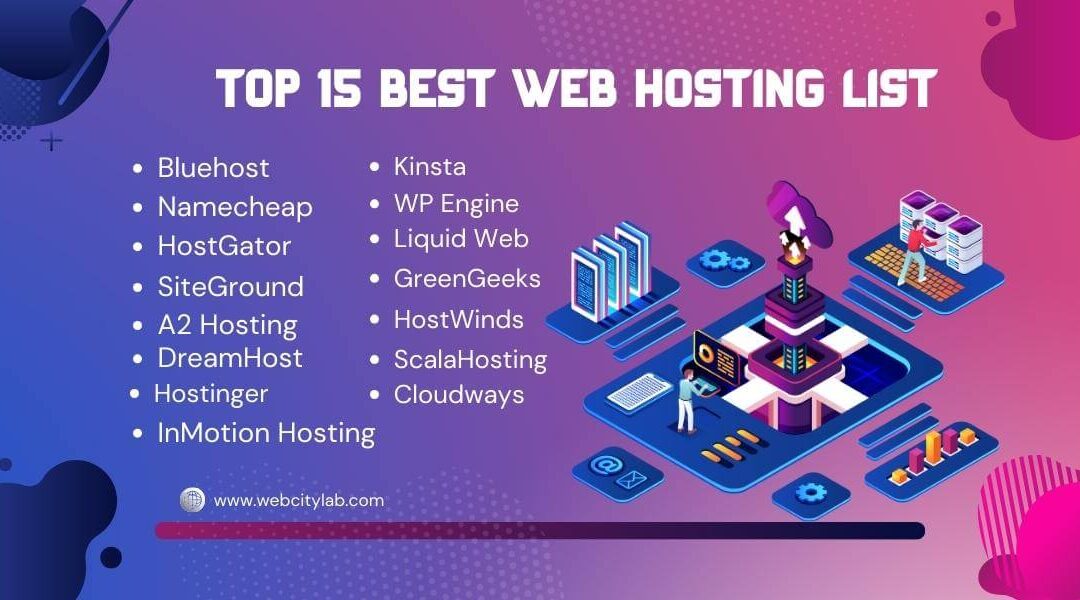
Top 15 Best Web Hosting List
Top 15 Best Web Hosting List given below:-
- Bluehost: Bluehost is known for its beginner-friendly approach, and it’s officially recommended by WordPress. They offer a range of hosting plans, including shared hosting, VPS, and dedicated hosting.
- HostGator: HostGator is another well-known hosting provider with a variety of hosting options. They offer shared hosting, cloud hosting, VPS hosting, and dedicated hosting.
- SiteGround: SiteGround is popular for its excellent customer support and performance. They offer shared, cloud, and managed WordPress hosting plans.
- A2 Hosting: A2 Hosting is known for its speed and reliability. They offer various hosting options, including shared hosting, VPS, and dedicated hosting.
- InMotion Hosting: InMotion Hosting provides a range of hosting solutions with a strong focus on customer support. They offer shared, VPS, and dedicated hosting.
- DreamHost: DreamHost is an independently owned hosting provider known for its transparency and commitment to open-source software. They offer shared hosting, VPS, and dedicated hosting.
- Hostinger: Hostinger is a budget-friendly hosting provider that offers shared hosting, cloud hosting, and VPS hosting with competitive pricing.
- Kinsta: Kinsta specializes in managed WordPress hosting with a focus on speed and performance. They use Google Cloud Platform infrastructure.
- WP Engine: WP Engine is another managed WordPress hosting provider that caters to WordPress users, offering features like automatic updates and daily backups.
- Liquid Web: Liquid Web is known for its high-performance hosting solutions, including managed WordPress hosting, dedicated servers, and VPS hosting.
- GreenGeeks: GreenGeeks is an eco-friendly hosting provider that offers shared hosting, reseller hosting, VPS, and dedicated hosting.
- HostWinds: HostWinds provides various hosting services, including shared hosting, business hosting, VPS hosting, and dedicated hosting.
- ScalaHosting: ScalaHosting offers shared hosting, managed VPS hosting, and dedicated servers. They also provide SPanel, their own control panel solution.
- Cloudways: Cloudways is a managed cloud hosting platform that allows you to host your website on cloud infrastructure providers like AWS, Google Cloud, and DigitalOcean.
- Namecheap: Namecheap is known for its domain registration services, but they also offer affordable shared hosting and WordPress hosting.
Remember to carefully assess your needs, including website type, traffic expectations, budget, and required features, before choosing a web hosting provider. It’s a good idea to read user reviews and consult with the hosting provider’s support team to ensure they can meet your specific requirements. Additionally, keep in mind that the hosting landscape can change over time, so it’s essential to stay updated with the latest information and reviews.





